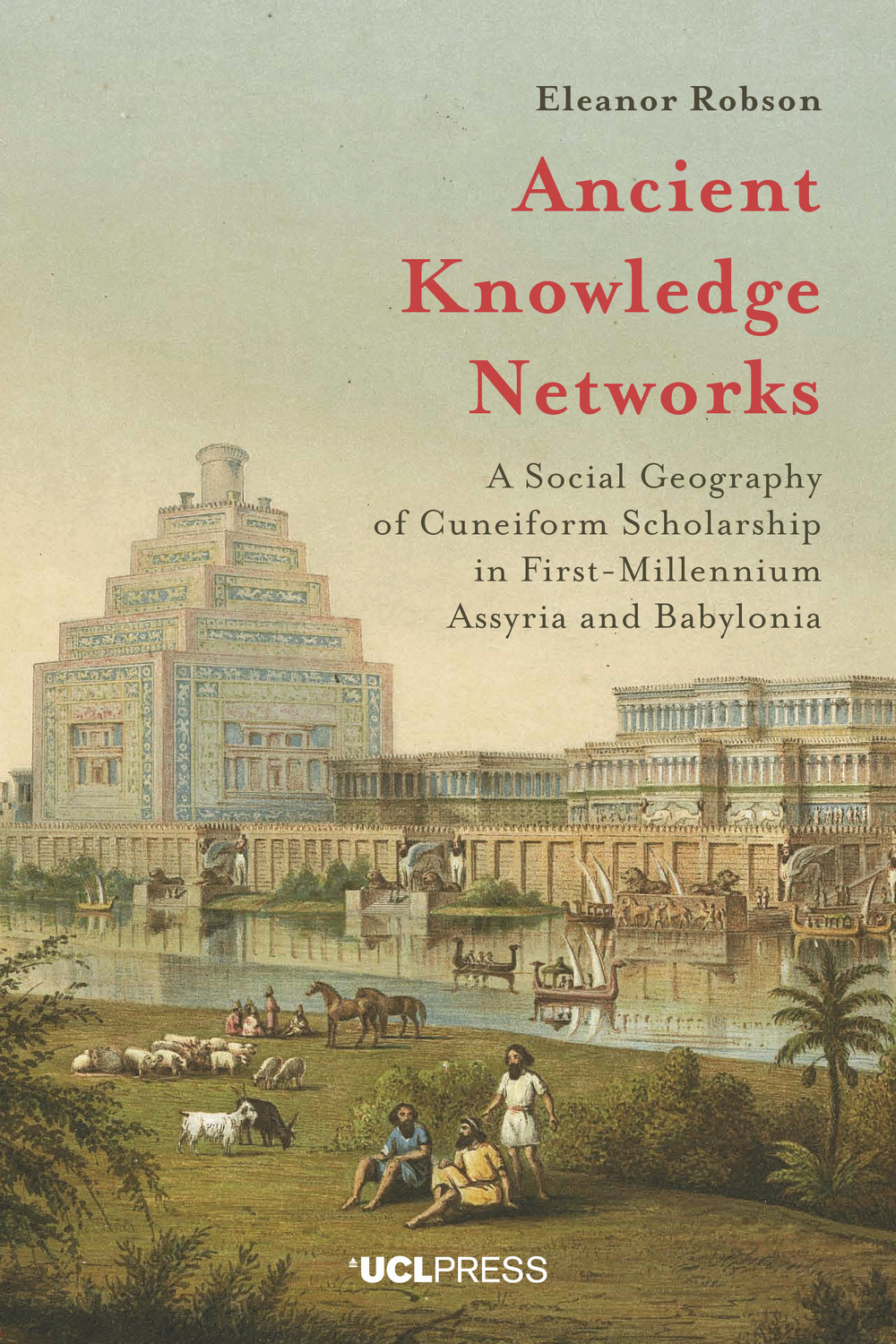Eleanor Robson
ISBN: 9781787355941
Publication: November 14, 2019
Ancient Knowledge Networks is a book about how knowledge travels, in minds and bodies as well as in writings. It explores the forms knowledge takes and the meanings it accrues, and how these meanings are shaped by the peoples who use it.
Addressing the relationships between political power, family ties, religious commitments and literate scholarship in the ancient Middle East of the first millennium BC, Eleanor Robson focuses on two regions where cuneiform script was the predominant writing medium: Assyria in the north of modern-day Syria and Iraq, and Babylonia to the south of modern-day Baghdad. She investigates how networks of knowledge enabled cuneiform intellectual culture to endure and adapt over the course of five world empires until its eventual demise in the mid-first century BC. In doing so, she also studies Assyriological and historical method, both now and over the past two centuries, asking how the field has shaped and been shaped by the academic concerns and fashions of the day. Above all, Ancient Knowledge Networks is an experiment in writing about ‘Mesopotamian science’, as it has often been known, using geographical and social approaches to bring new insights into the intellectual history of the world’s first empires.
Praise for Ancient Knowledge Networks
'Eleanor Robson’s Ancient Knowledge Networks offers a fascinating portrait of the social and geographical life of cuneiform scholarship, scribal learning, or ṭupšarrūtu. It examines high cuneiform culture in the terms of the texts' own taxonomies of knowledge, while taking full account of relevant archaeological evidence and employing micro- and macro-geographical analysis. A lucid presentation of new ideas concerning the Assyrian and Babylonian first-millennium intelligentsia and their patrons, Ancient Knowledge Networks is a book for cuneiformists as well as non-specialist readers outside the ancient Middle Eastern fields.' - Francesca Rochberg, University of California, Berkeley
1. Introduction
2. From ‘Ashurbanipal’s Library’ and ‘the stream of tradition’ to new approaches to cuneiform scholarship
3. Trust in Nabu? Assyrian royal attitudes to court scholarship
4. The writing-board was at my house: scholarly and textual mobility in seventh-century Assyria
5. Grasping the righteous sceptre: Nabu, scholarship, and the kings of Babylonia
6. At the gate of Eanna: Babylonian scholarly spaces before and after the early fifth century
7. Conclusions: Towards a social geography of cuneiform scholarship
Bibliography
Index
Eleanor Robson is Professor of Ancient Middle Eastern History at UCL. She is equally interested in the social and political history of the cuneiform cultures of ancient Iraq, 5000–2000 years ago and the construction of knowledge about ancient Iraq in over the past two centuries. Her Mathematics in Ancient Iraq: A Social History (2008) won the History of Science Society’s Pfizer Prize in 2011. With UK and Iraqi colleagues she runs the AHRC/GCRF-funded Nahrein Network (2017–21), which fosters the sustainable development of history, heritage and the humanities in Iraq and its neighbours.










 Stumble It!
Stumble It!

No comments:
Post a Comment